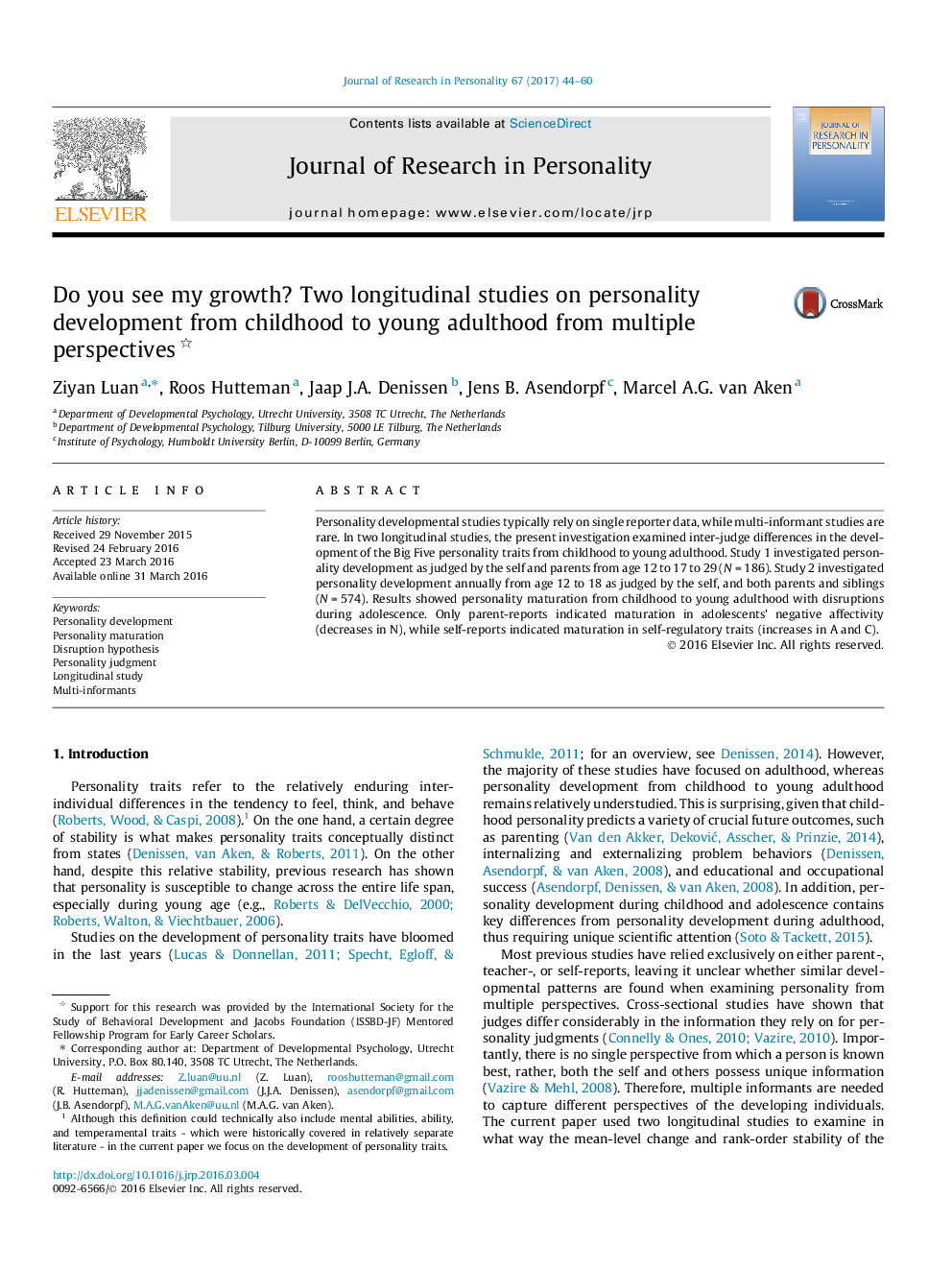| Article ID | Journal | Published Year | Pages | File Type |
|---|---|---|---|---|
| 5046205 | Journal of Research in Personality | 2017 | 17 Pages |
â¢Two longitudinal studies showed personality maturation to be a social construction.â¢Parents' views showed disruptions in personality maturation (decreases in A).â¢Parents' views showed maturation in negative affectivity (decreases in N).â¢Self-views showed maturation in self-regulatory traits (increases in A and C).â¢Self-mother agreement was higher than self-father and self-sibling agreement.
Personality developmental studies typically rely on single reporter data, while multi-informant studies are rare. In two longitudinal studies, the present investigation examined inter-judge differences in the development of the Big Five personality traits from childhood to young adulthood. Study 1 investigated personality development as judged by the self and parents from age 12 to 17 to 29 (NÂ =Â 186). Study 2 investigated personality development annually from age 12 to 18 as judged by the self, and both parents and siblings (NÂ =Â 574). Results showed personality maturation from childhood to young adulthood with disruptions during adolescence. Only parent-reports indicated maturation in adolescents' negative affectivity (decreases in N), while self-reports indicated maturation in self-regulatory traits (increases in A and C).
